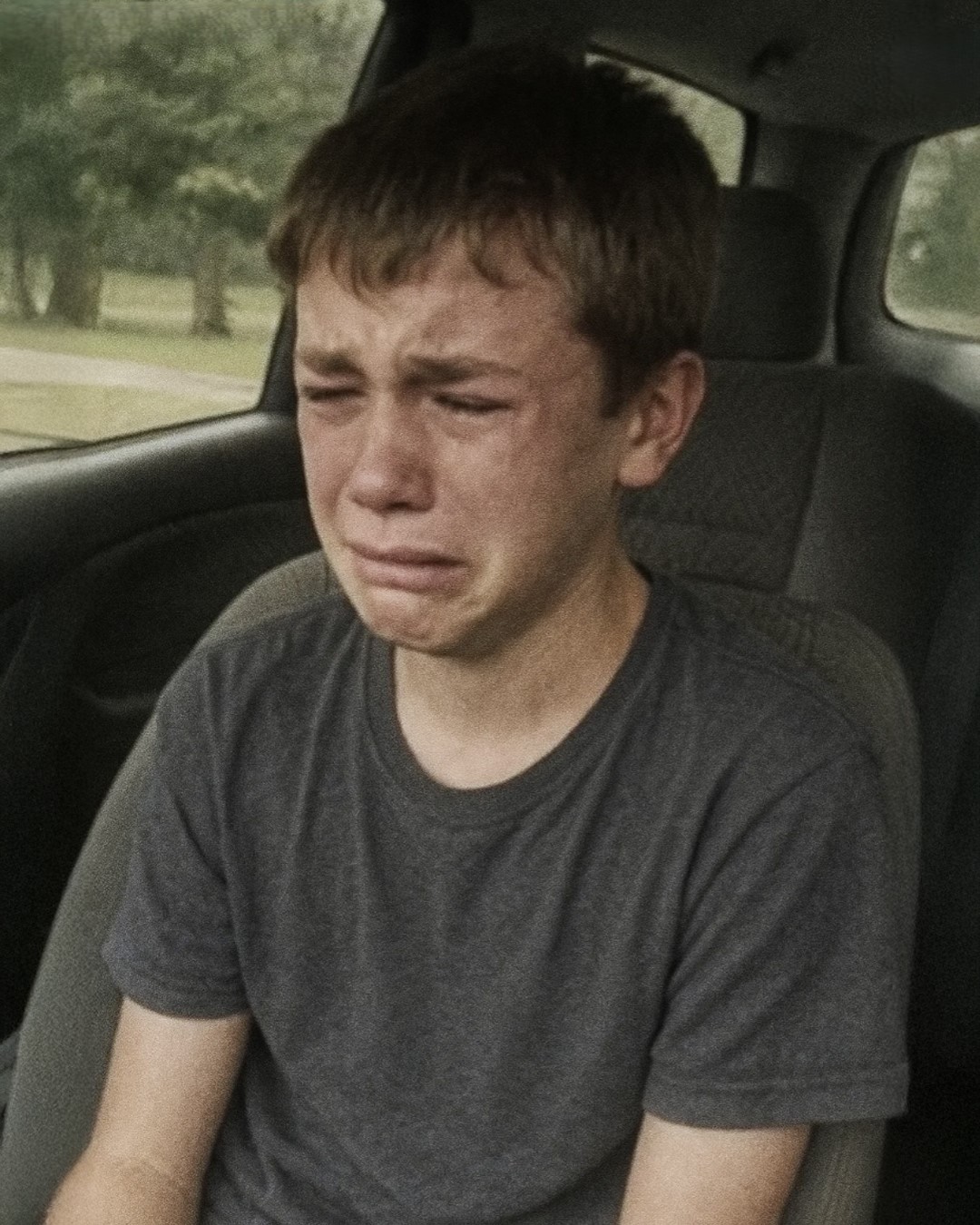That word stuck in my chest.
This wasn’t Mason. He color-coded his folders. He blushed when he got a B. Something was wrong. I called him—no answer. I left voicemails. Nothing.
Then I called Eddie, trying to stay calm. I didn’t want to sound accusatory. Divorced moms learn to walk that tightrope—where concern can easily be dismissed as control.
Eddie sighed. “He’s a teenager, Claire. You’re overthinking again.”
That word again. Overthinking. The same one he used when Mason was a colicky baby and I sobbed on the bathroom floor, clutching our screaming newborn while Eddie slept through it.
I believed him then. I didn’t want to believe I was doing it all alone. But I had been. And I still was.
Mason wasn’t fine. He was slipping through the cracks. And I had let him.
So one rainy Thursday, I didn’t ask. I drove to his school, parked where he’d see me, and waited. When the bell rang, I saw a wave of teenagers flood out. But my son walked alone, hoodie soaked, shoulders curled. He slid into the passenger seat without a word. His face was pale, lips chapped, eyes hollow.
I handed him a granola bar. He didn’t even look at it.
Then he whispered, “I can’t sleep, Mom. I don’t know what to do…”
The words came slowly, like bricks falling from a crumbling wall. Eddie had lost his job weeks after Mason moved in—but kept it a secret. He pretended everything was fine. But the fridge was often empty. The lights flickered. The microwave sparked. Mason said Eddie was gone most nights, supposedly at job interviews—but sometimes, he just didn’t come back.
So Mason adapted. Cereal without milk. Crackers for dinner. Peanut butter from the jar. He did laundry when he had no socks left. Homework by candlelight. He tried to protect his dad. Me. Himself.
He wasn’t lazy. He wasn’t rebelling. He was surviving.
And I hadn’t seen it.
That night, I took him home. No drama. No explanations. Just instinct. He didn’t resist.
He slept fourteen hours straight.
The next morning, he asked if I still had his old robot mug. I found it in the back of the cupboard. He smiled into it like it was an old friend. A few hours later, he asked for breakfast—a real one. Bacon, eggs, sausages. I made it all.
I filed for custody quietly. Not to punish Eddie—but to protect Mason. He would stay with me. No debate. Not until trust could be rebuilt. Not until Mason felt safe. Chosen.
Healing didn’t happen overnight. He barely spoke. Drifted through the days like a ghost. Picked at his food. Stared blankly at the TV. But I didn’t push.
I made the house soft. Predictable. Safe.
We started therapy. On his terms. He chose the therapist. The schedule. The music in the car on the way there. I left sticky notes on his door. Just little things: Proud of you. You don’t have to talk—I see you anyway.
At first, he ignored them.
Then one night, I found a note on my nightstand in shaky pencil: Thanks for seeing me. Even when I didn’t say anything.
And that was everything.
One afternoon, he asked if he could stay after school for robotics club. My hands froze mid-stir on the stove. “Of course,” I said, as casually as I could. “That sounds great.”
Weeks later, he brought home a popsicle stick bridge. It collapsed in his hands. He laughed. A real laugh.
“That’s okay,” he said. “I’ll build another one.”
In May, I got an email from his teacher. End-of-year assembly. “You’ll want to be there,” she wrote.
They called his name: Most Resilient Student.
He walked across the stage tall and steady. Scanned the crowd. Smiled. One hand lifted toward me. The other toward Eddie, seated quietly in the back.
That simple gesture said what none of us could: We’re still family. We’re healing.
Eddie still calls. Sometimes it’s awkward. Sometimes it’s brief. But Mason answers. Because now, he chooses who gets his time. Who gets his trust.
His room is messy again—the good kind of messy. Socks on the floor. Music too loud. Sticky notes taped above his desk. One step at a time. Remember to breathe. You’re not alone, Mase.
He teases me about my ancient phone. Complains about vegetables. Tries to convince me to let him dye his hair green. And when he asks for help, I drop everything.
Not because I can fix it all.
But because he asked.
Because he trusts me now.
And that’s everything.
I’ve forgiven myself for not seeing it sooner. I’ve learned that silence isn’t peace. And distance isn’t always kindness. Sometimes love is loud. It shows up without being asked. It knocks. It waits. It steps in and says:
I know you didn’t call. But I came anyway.
Mason didn’t need space.
He needed rescue.
And I’ll never regret diving in when he was drowning. That’s what mothers do.
We dive.
We hold on.
And we don’t let go until the light comes back.

